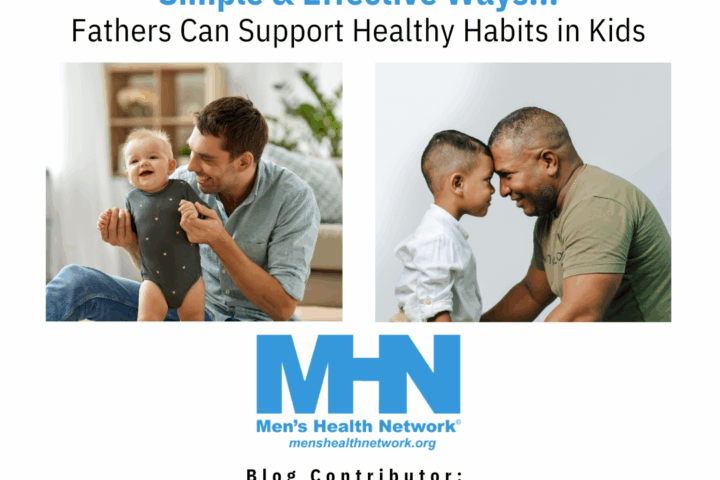The following post is a follow up to the June 17, 2010 post Part I: Passivity and the Male Psyche.
I, NOT YOU
When we become truly ready to address our passivity one of the first active steps we take is to see the absolute necessity in dropping one of the most button-pushing, regressive words in the English language: “you.” The differences between “I need” and “You need to_____” “I hurt” and “You hurt me,” “I feel,” and “You made me feel” “I love you” and “do you love me?” are enormous and only perpetuate passivity. Besides there is something about this three letter word that puts almost everyone in a defensive posture, and causes them to duck and run for cover. It instigates “I’m out of here” or distancer behavior.
“If only you would…” “Why don’t you…” “You should…” “You ought to…” Even the word “You” by itself triggers many people’s defenses.
Intimacy ends with “You” and begins with “I.” The word “I” is active, compassionate, responsible, remorseful, mature, and non-threatening. It enhances communication and reduces needless confrontations and conflicts. “I” becomes the actor, instigator and mover. “You” act upon me, you must be the initiator and move me from one place to another. It is the “I” who must fill one’s own glass.
THE COMPASSIONATELY ASSERTIVE PERSON
The fully lived life is achieved not by aggressive acts but by becoming a compassionately assertive person who can genuinely give apologies and make amends which leaves not only the injured party feeling better, but it transforms the one saying it as well. The authentic apology makes no excuses, assigns no blame, and carries no guilt or shame. Followed by an amends—changing behavior and stopping the offense—it repairs and mends the tear in the relationship fence. Everyone wins.
The compassionately assertive person will actively give and receive love in a mature adult way, something the passive person cannot do. As a compassionate man or woman you will send those you love the kind of love they need. Instead of passively following the Golden Rule: Do unto others as you’d have them do onto you, you follow the Platinum Rule of compassion: Do unto others the way they need to be done to. Those you love have probably been yearning to be loved in that way their whole lives.
The passive person puts so many limits on their love by expressing this emotion in only one or two ways. The active loving person works diligently and with commitment to learn and then express the following four kinds of love:
1. Eros—Erotic love
2. Agape—Spiritual love
3. Philios—Friendship love
4. Caritas—Love of Community
Finally, the compassionately assertive person does not need to run from clashes and disagreements, which are a part of every relationship, because they have the resources to handle them appropriately. They are emotionally equipped to finish the four assertive statements regarding requests of others and themselves:
1. This is what I want _____________.
2. This is what I need _____________.
3. This is what I will not do to get my wants and needs met ___________.
4. This is what I will do to get my wants and needs met ______________.
REMEMBERING WHO YOU WANTED TO BE
Once the passive person starts digging their way out of the passive pit they start reconnecting to their true selves. I often refer to this reconnection as “remembering who you wanted to be.” Most people remember a moment in their childhood or much later in life, when they realized what their passion, purpose or calling was. They knew right then what they should do with their lives and careers, but because they were operating from a passive point of view, they didn’t seek that dream because of fear, hopelessness or because they just didn’t have the energy. Being passive takes a lot of energy. Let’s say you’ve always wanted to be a portrait painter, but you are afraid that if you pursue your dream you’ll become the proverbial starving artist—destitute and homeless. In reality what happens is that even if the passive person lives in a mansion, they become emotional (if not financially) destitute because they didn’t pursue their passion.
IDENTIFYING THE OBSTACLES
Another step in this life-changing process will be identifying how we have committed what I call “Infidelity of the Heart” and in turn adopting a glass half empty view of ourselves in the world. We examine how we’ve robbed and cheated ourselves out of our heart’s deepest desires; compromising our soul, body and brain and sabotaging our success in love, relationships, creative endeavors and vocational callings.
By identifying your greatest distractions and detractors, you can find the perpetrators of your passivity. Distractions include addictions, work, and even your own children; anything you have used as an excuse to not life to its fullest. Detractors can take the form of your high school guidance counselor that said you didn’t have what it takes to make it in college or the parent who belittled your creative impulses.
While recommitting to the pursuit of happiness, wholeness, and fulfillment we then explore what in some Buddhist traditions refer to as human beings Five Great Fears:
1. The fear of loss of livelihood
2. Loss of life
3. Loss of reputation
4. Fear of losing our minds
5. Speaking our truths out to people/public
By working through each of these fears you can enter into a much-needed, way overdue dialogue between Faith and Fear. When you give a voice to each you can more wholly become the person you were meant to be.
Having done or continuing to do all of the above, we learn from our mistakes and begin to live life as an imperfect adventure as expressed by the following passages from some of the world’s greatest poets:
“Make sweet honey out of my old failures….”— Spanish poet, Antonio Machado
“When your vision is gone and no part of the world can find you. Give up all the worlds in which you live except the one you own.”—Contemporary poet, David Whyte
“Light, where is the light? Don’t let your whole life go by in the dark.” —Unknown Hindu poet
“Let yourself be slightly drawn by the stranger pull of what you really love.”—13th century Persian poet, Rumi
THE CONCLUSION
The Half-Lived Life provides you with many ways out of passivity along with tools to conquer it. However, like so many bad habits and behaviors, passivity tends to come back so I have included ways to actively fight against this tendency.
CREATING A MIRACLE LIST
One of the most powerful ways to advance the process of being who you really are and live a Full Glass Life is to create a miracle list. This list consists of the big, small, medium and huge miracles—things that happened, people who came into your life, jobs, friends, and moves that in retrospect you recognize as gifts or acts of Grace. Everyone has free will and many have “shown up,” but there was something about these miracles that lets you know that some greater thing, power, entity or force made them happen. The one who experiences these miracles know they couldn’t or wouldn’t have made them happen on their best day.
Remembering miracles will further motivate you to trust, let go of what no longer works (or perhaps never really did), and go forward into the future with hope and confidence that you will be taken care of, shown the way and be supported by others. The very universe itself will support what you have longed to be all your life. This will demonstrate—as almost nothing can—compassion towards yourself, and ultimately compassion towards everyone in life. Because the more fully you achieve peace and serenity, the more you will exude the confidence that becomes the catalyst to pursue your passions and dreams.
Once you begin to conquer your passivity, you will notice significant changes in your life:
- You become increasingly more compassionate towards yourself and those you care about.
- You release a good bit of your anger; practicing active loving (giving the kind of love others long to receive) and really remembering who you really wanted to be.
- Memories of miracles in your life are coming to you more rapidly.
GRATITUDE
As you are becoming compassionately assertive, you are then ready to take the next step. A technique that will help you actively stay out of the prison of passivity is gratitude. Create a list of the thing things, people, pets, jobs, relationships, gifts, and acts of kindness you’ve experienced. Gratitude is like a booster rocket to propel you onward to your true purpose in life and to speed you through the wildest ride of them all—actually doing what you really love.
I suggest making short gratitude lists each morning and evening for one year. It will change the list maker’s life and the lives of those around them.
DARING TO LIVE THE FULLY COMPASSIONATELY ASSERTIVE LIFE
Now it is time to put down this brief article down and use the tools gained from having read it and go out and actively, passionately, compassionately dare to as the poet Rilke says, “Stand up during supper and walk outdoors, and keep on walking.” Make a difference in your own and other’s lives. Hopefully moving from passivity to passion makes you want to take on the greatest project of all—LIFE. You can create the life you’ve always dreamed you would have, “Be all you can be.” Enlist in life, love, relationships, work, family, friendships, and make the world a better place for your having been here.
John Lee has been a leader and author in men’s health issues for over a decade. Lee began his career as a professor at Austin Community College, the University of Alabama, and the University of Texas. He has written 18 self-help, psychology, recovery, creativity, or relationship non-fiction books that explore men’s health issues, like alcoholism and co-dependency. In addition to literature, Lee has advocated for the maintenance and improvement of men’s health in magazines, like Newsweek and on shows such as Oprah and 20/20. In 1986, Lee co-founded Primary, Emotional, Energy, Recovery (P.E.E.R.), a training program for counselors, social workers, and psychotherapists. Two years later, he founded and directed Austin’s Men’s Center, a counseling center that specializes in men’s issues. In the late 1980’s, he opened his own private practice in Austin, Texas specializing in men’s issues, relationships, adult children of alcoholics, and co-dependency. His latest two books, The Anger Solution and When the Buddha Met Bubba, are on sale now on Amazon.com. More information about John Lee can be found on his web site www.johnleebooks.com and on his daily blog at https://openingtheheartnow.blogspot.com.



